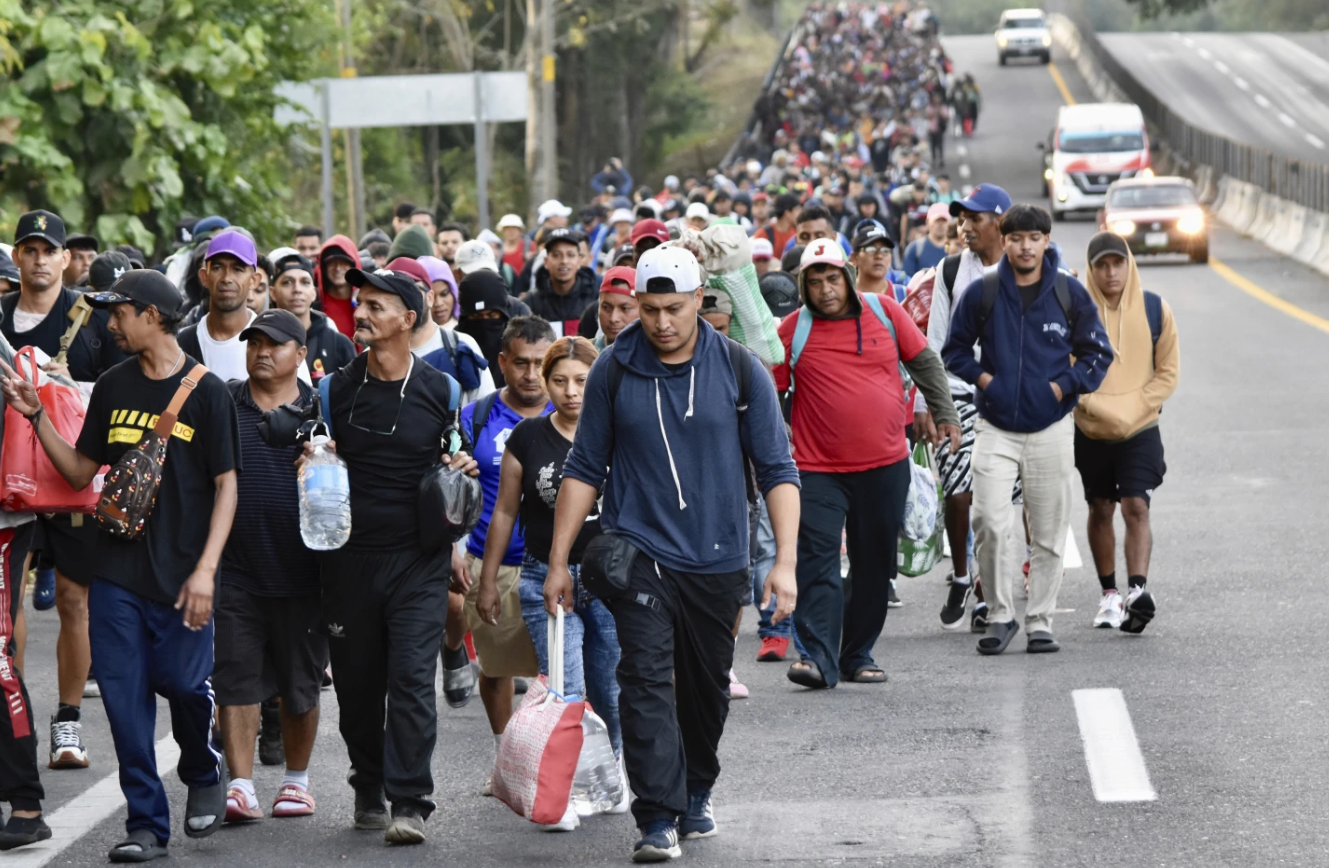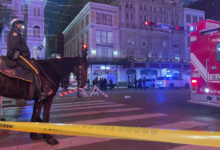Trump Suspends Asylum System, Leaving Immigrants in Legal Limbo
Trump suspends asylum system, leaving thousands of immigrants from Eritrea to Guatemala in legal limbo. President Donald Trump’s January 20 suspension of the U.S. asylum system has sparked confusion, fear, and increased deportations without due process, shutting the door on many fleeing persecution.

(WE) — They come from Eritrea, Guatemala, Pakistan, Afghanistan, Ghana, Uzbekistan, and many other countries. These migrants arrive at the U.S. border seeking protection. They cite persecution due to religion, politics, or sexual orientation.
For decades, migrants had the opportunity to present their cases under the U.S. asylum system. However, that chance effectively vanished on January 20.
On his first day back in office, President Donald Trump signed a sweeping executive order that suspended the asylum process. He framed the move as a necessary response to what he called an “invasion” of the United States.
As a result, thousands of immigrants have faced confusion and hardship. Some are expelled without explanation. Others land in detention. Many receive no legal access, no interview, and no clear path forward.
One former Russian election worker shared his story. After documenting vote-rigging in his home country, he fled to the U.S. with his wife and son. He hoped to seek asylum. Instead, Customs and Border Protection deported them to Costa Rica—a country they had never lived in.
“No one asked me why I came,” he said. “They didn’t assign us an ICE officer. They didn’t conduct an interview.”
Ultimately, CBP shackled him and put him on a flight out of the U.S. Only his child was allowed to travel unrestrained.
Confusion dominates the immigration system today. Bella Mosselmans, executive director of the Global Strategic Litigation Council, summarized the chaos: “No one knows what happens when someone asks for asylum.”
The lack of transparency has left even seasoned immigration lawyers guessing. According to Paulina Reyes-Perrariz, a lead attorney at the Immigrant Defenders Law Center in San Diego, her office used to receive 10 to 15 inquiries about asylum each day. Now, those calls have nearly stopped.
“People just don’t know what to do anymore,” she explained. “We can’t even tell them what the current process is.”
Meanwhile, U.S. Immigration and Customs Enforcement detains some migrants, while others face immediate expulsion—often without formal documentation. The inconsistency has become the new norm.
Legal challenges have already begun. The American Civil Liberties Union has filed multiple lawsuits arguing that Trump’s order violates both U.S. and international law. One key case will test whether courts can review the administration’s “invasion” justification.
Although the Department of Justice claims the issue falls outside judicial review, the ACLU argues that the courts must intervene. The organization called the policy “unlawful” and “unprecedented.” A ruling is expected later this year.
Since the order took effect, illegal border crossings have sharply declined. Under President Joe Biden, crossings had reached up to 10,000 per day in late 2024. Now, they have fallen significantly. Still, CBP continues to arrest over 200 migrants daily at the southern border.
However, the government has released little information about who receives asylum screenings. Many attorneys believe officials now route migrants through the U.N. Convention Against Torture process instead. This legal path, which imposes stricter standards than asylum, rarely grants protection.
The Russian man followed the rules meticulously. He and his family entered Mexico legally in May 2024. After renting an apartment near the California border, they waited nine months for an asylum appointment.
On January 14, he finally received a confirmation: his interview was scheduled for February 2. But six days later, after Trump’s inauguration, CBP shut down the appointment system and canceled thousands of cases. No appeals were offered.
Desperate, the family walked to the San Diego port of entry. Border agents took them into custody. Weeks later, they boarded a plane to Costa Rica—shackled and disoriented.
Read More:
- Supreme Court Allows Trump to Implement Transgender Military Ban
- Mike Waltz to Exit White House Amid Signal Chat Fallout
- Pete Hegseth Under Fire for Leaked Military Plans in Private Signal Chat
They now live in a shelter in San José, along with several other displaced families. Although most migrants there have moved on, the Russian family remains stuck.
The Trump administration has expanded deportations through third-party countries. In 2025 alone, the U.S. has sent more than 200 migrants to Costa Rica and over 300 to Panama. Officials say these countries serve as temporary holding zones before migrants are returned home.
Supporters of the new policy argue that the asylum system had long been abused. Government data shows that immigration judges approved only 30% to 50% of claims in recent years. Critics believe the low success rate proves that many migrants lacked valid cases.
Even some liberal voices have endorsed tighter controls. Former Rep. Barney Frank supported Biden’s 2024 asylum limits, arguing they were necessary to protect public support for immigration reform. In a Wall Street Journal op-ed, Frank warned that too many migrants had gamed the system.
Nevertheless, for people like the Russian man, the argument feels unjust. He had risked his life to expose fraud and followed every rule along the way. After months of waiting, he finally secured an interview—but that opportunity vanished without warning. Despite his efforts, no one gave him a chance to speak.
Now, he spends his days teaching his son English and Russian. He organizes volleyball games at the shelter. But his mind often drifts back to what he lost.
“I thought the U.S. would listen,” he said. “But no one asked.”
He doesn’t blame Americans. He understands the political pressure to control immigration. Still, he can’t accept what happened to his family.
“I failed them,” he said quietly. “Every day, I wake up thinking that—I failed them.”















